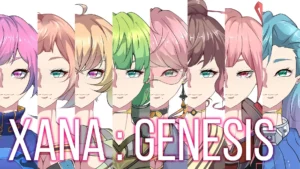The Metaverse, a term once relegated to the realms of science fiction, is now at the forefront of technological innovation. Let’s delve into how this digital universe is reshaping our interactions, work, and play.
Understanding the Metaverse in Modern Technology
The Metaverse is an expansive, online, 3D universe that amalgamates various virtual spaces. It’s considered the future iteration of the Internet, where users can work, meet, play, and socialize in 3D environments.
While not fully realized yet, platforms with elements akin to the Metaverse exist, notably in video games. These games, transcending traditional gaming boundaries, host events and foster virtual economies, hinting at the Metaverse’s potential.
The Role of Cryptocurrency in the Metaverse
Cryptocurrencies are likely to be pivotal in the Metaverse, facilitating the creation of a digital economy through utility tokens and NFTs (Non-Fungible Tokens). Blockchain technology could offer a transparent and reliable governance system within this space.
Key Aspects of Metaverse’s Power
The Metaverse’s driving force lies in its infrastructure, encompassing cloud solutions, software tools, user-generated content, and more. It’s expected to encompass diverse experiences, including entertainment, commerce, education, and social interaction.
Integrating Cryptocurrency in the Metaverse
Cryptocurrency’s integration into the Metaverse is vital, offering digital proof of ownership, secure value transfer, and participatory governance. Cryptos and Blockchain provide decentralized solutions for these needs, contrasting with the centralized nature of traditional video game development.
The Contribution of DeFi and GameFi to the Metaverse
Blockchain’s influence in gaming, especially through DeFi (Decentralized Finance) and GameFi (a blend of gaming and finance), is significant. These sectors offer parallels that could further intertwine gaming with the Metaverse.
Digital Proof of Ownership
Blockchain wallets offer a secure way to establish digital identity and ownership. For instance, transaction records on the Blockchain can serve as accountability tools in professional settings.
Digital Authenticity
Blockchain, particularly NFTs, ensures the uniqueness and authenticity of digital items, crucial for virtual economies and collectibles.
Value Transfer
A reliable medium for value transfer is necessary in the Metaverse, where traditional in-game currencies may fall short. Blockchain provides a secure and trusted method for these transactions.
Governance
Participatory governance, akin to real-world voting rights, is essential in the Metaverse. Blockchain technology offers a proven framework for fair and transparent governance.
Accessibility
Blockchain wallets are universally accessible, contrasting with traditional banking systems. They provide an inclusive means to manage online finances and digital identities.
The Future of Video Games and Metaverse
Video games, with their 3D virtual environments, currently offer the closest Metaverse experience. They have evolved beyond mere entertainment to host virtual events and concerts, like the 12.3 million-strong Travis Scott’s Virtual In-Game Music Tour in Fortnite.
Summing Up
The Metaverse, powered by Blockchain and Cryptocurrency, is set to revolutionize how we interact digitally. It offers a multifaceted platform where the physical and digital worlds converge, fostering a new era of virtual experiences. Stay tuned for further developments in this exciting digital frontier!














